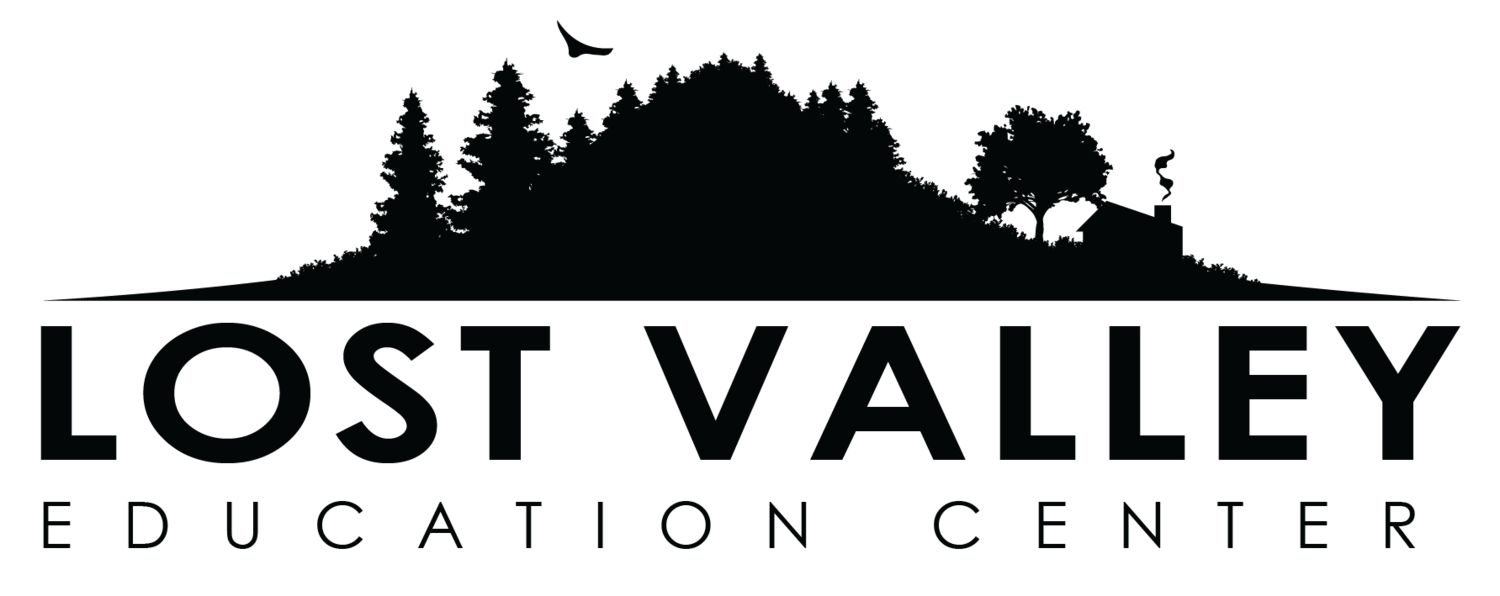PDC Curriculum overview
WEEK 1: Ethics & Principles, Patterns, and the Local Ecosystem
Earth care ~ people care ~ fair share! By staying grounded in our core values and principles, we can design solutions to any of our collective challenges. Learn the 3 core ethics and 12 principles that guide and inform permaculture design and practice, and why they’re so needed in the world. Learn the art of observation and awaken to the patterns all around you. In permaculture, pattern language informs our design process at all levels. Weather systems, ecological successions, zones & sectors, keyhole gardens, watercourses, seashell spirals, leaf veins, and more. Also explore the local ecosystem, and Lost Valley as an 87-acre living permaculture site.
WEEK 2: Permaculture Design Process, Keyline Design, Biogeography and Microclimates
Learn the fundamental elements of permaculture’s innovative design process, including manual and digital tools for surveying and mapping your landscape. Understand the elements of a complete design, how to present it, and sample professional and student designs. Learn about making designs up the keyline scale of permanence, recognizing what attributes of a site are easy to change and which are to be adapted to. Also learn about climates, biogeography, and microclimates.
WEEK 3: Water: Cycle, Harvesting, Retention and Aquaculture
Water the is the lifeblood of our world. In permaculture, we respond by working with its natural flows: catching it from the sky, cleaning it with plants, and storing it in the landscape. Carry out hands-on water planning projects and see on-site earthworks in place. Also learn about aquaculture as an alternative closed-loop food production system.
WEEK 4: Decolonizing Permaculture and Access to Land
This week, students will learn from Anishinabe Elder, Dan Wahpepah, about his approach to decolonization, particularly within permaculture, land access and designing for invisible structures.
WEEK 5: Plants, Cultivated Ecologies, Earthworks, Soils and Microbiology
Soil is the foundation of all terrestrial life. Learn from the ground up about soil care, basic botany, plant families and uses, and sample plant guilds. Touch, taste, and see many plant examples in use at Lost Valley. Also learn about earthworks and see examples here on the land of swales, ponds, and dams.
WEEK 6: Waste & Bioremediation, Designing for Catastrophe
Learn how permaculture design can mitigate the effects of climate change, natural disasters, and other emergencies. Explore bioremediation and ways that permaculture addresses “waste”. Learn how to treat and reuse greywater, considered “dirty” but still of value. Also discover human nutrient recycling and the responsible use of composting.
WEEK 6 (Optional field trip) : Animal Integration and Closed Loop Systems
This week will include an optional field trip to Heart-culture Farm in West Eugene to explore animal integration and closed-loop systems. Learn the characteristics of wild and domesticated animals and how to design productive ecosystems that benefit them and us. Also explore techniques for dealing with troublesome little critters, via integrated pest management (IPM). Also learn about social permaculture.
WEEK 7: Trees, Forest Ecology, Fire and Regenerative Forestry
Forests are among the most diverse and resilient habitats on Earth. With conscious management, they can support our long-term social needs while providing habitat for other life. Explore how forest ecosystems function, and how to design productive and regenerative food forests & woodlots. Also learn about fire ecology and biochar production for increasing carbon storage and soil fertility.
WEEK 8: Natural Building, Healthy Homes
Learn about the art of natural building. Modern construction practices create a massive amount of toxic landfill waste. In natural building, the key ingredients come from – and return to – the Earth. Learn how to use local, renewable materials to design smart and simple shelters. Then, get dirty with a hands-on project.
WEEK 9: Working with Clients and Suburban Permaculture
Learn about permaculture economics and take a field trip to local suburban permaculture sites. This week, students will visit Dharmalaya and some residential suburban permaculture sites in Eugene to explore examples of permaculture implemented in a variety of settings. Finally, get tips about working with design clients and building client relationships.
WEEK 10: Presentations, Planning for the Future, and Community Celebration!
Present your polished group projects to the class, the Lost Valley community and mentors. This is the culmination of the course experience, putting all the elements together in a creative project proposal. Also learn more about the permaculture “scene” and what’s next now that you have your PDC.
Finally, participate in an afternoon of community fun and celebration with the “Untalent Show.” Congratulations!
“An enjoyable, whole-hearted, holistic immersion into the word of permaculture. Beautiful location; a diversity of knowledgeable instructors; and good people to share in the journey. Hands-on and hearts-on education with a conscience.” – Jesse Hickman, PDC student

